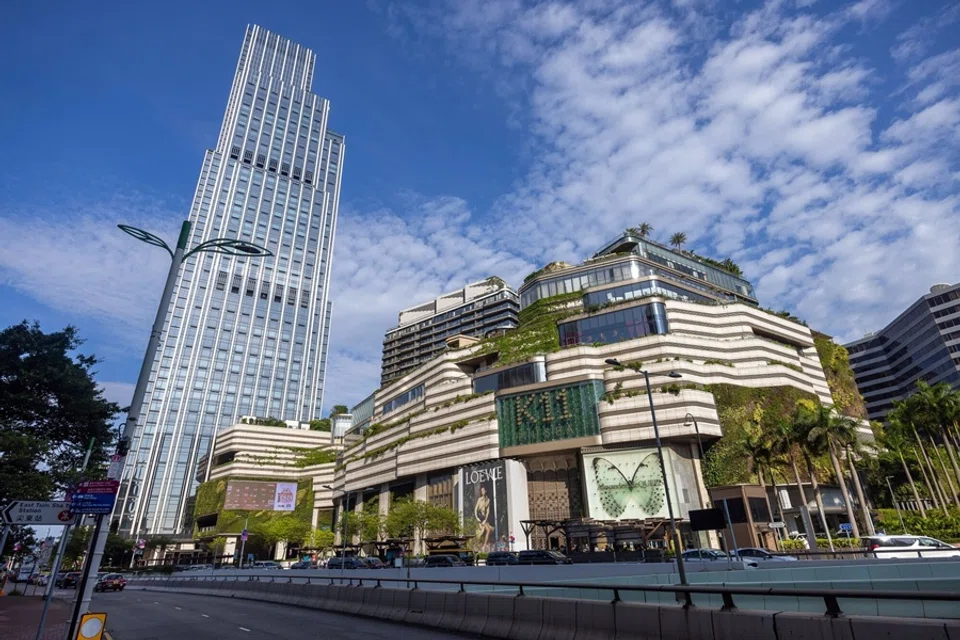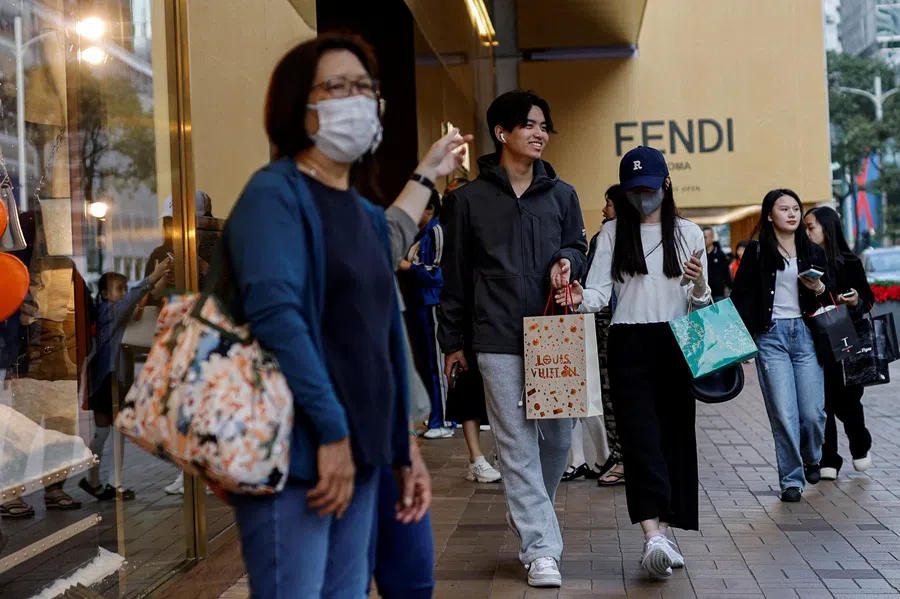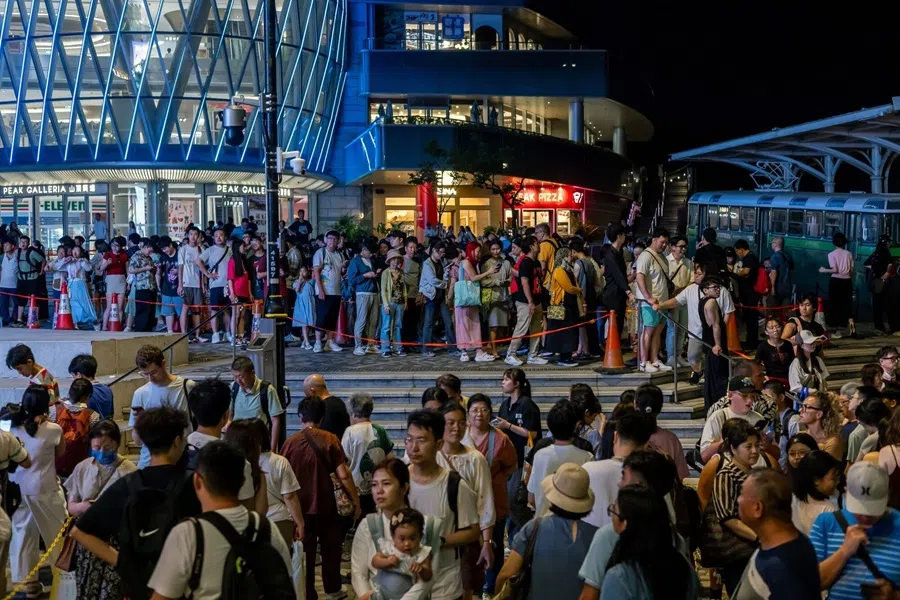Empty shops, unpaid rents: Is Hong Kong retail unravelling?
Amid high property prices and rentals in Hong Kong, many office units are being left vacant, while old brands are finding it difficult to survive. Lianhe Zaobao journalist Tai Hing Shing gives his analysis.

In recent months, the Hong Kong residential market has seen sporadic, individual cases of short-term speculation yielding gains, both in new property sales and the secondary market. This activity reflects a growing belief that Hong Kong property prices have bottomed out and stabilised, prompting investors to enter the market.
This optimism is partly fuelled by the anticipation that the US Federal Reserve is likely to cut interest rates in the second half of 2025, which, due to Hong Kong’s currency peg, would typically translate to lower local borrowing costs. However, the situation in the office building market is vastly different.
Sluggish office building market
Looking at office buildings, the vacancy rate for Hong Kong office buildings has hovered high for the past few years. According to annual property reports published by the Rating and Valuation Department, office vacancy rate across the city had risen to about 16% by the end of 2023, which meant that one in every five or six office units was vacant. Surprisingly, this was not the peak, as the figure increased further to a historical high of 16.3% by the end of 2024, involving more than 2.1 million square metres of floor space.
The sluggish sentiment in Hong Kong’s office building market is not only related to oversupply, it is also significantly influenced by structural change in the market over the past two to three years. Many companies have become accustomed to remote working post-pandemic or have opted for small office spaces, which led to weak demand in the office building market and eventually, historically high vacancy rates. As a result, in the fourth quarter of 2024, the prices and rents of office buildings in Hong Kong dropped by 22.6% and 5% year-on-year respectively.
Real estate consultancy Colliers Hong Kong pessimistically predicted last month that with many new office buildings set to be completed this year, the market would need at least two years to digest the current supply. They estimated a further rental decline of 8% to 10% this year.
... the number of vacant shops in Central rose by 7.3% in six months, from 193 in Q3 2024 to 207 in Q1 2025.
Vacant shops
Though media coverage has mostly been negative, there have been some positive signs in the Hong Kong office building market recently, including the consistent upward trend for the Hong Kong stock market, warming investment sentiment and companies expanding their investments. This has led to significant transactions and lease agreements in the commercial property market that has stimulated the office building market, uplifting the overall pessimistic mood for the market over the past two years.

However, the high street shop market in Hong Kong has yet to show signs of positive change. According to statistics released at the end of June by Hong Kong real estate agency Midland IC&I’s research department, in the four major core shopping districts of Causeway Bay, Central, Tsim Sha Tsui and Mong Kok, the number of vacant shops in Q1 2025 approached 900, with vacancy rate rising to about 12.1%, the highest in the last four and a half years.
Going by region, Mong Kok performed the worst, with 334 vacant shops as of Q1 2025, an 8.1% increase within six months. This exceeded the pandemic peak of 259, setting a new high since Midland began recording data in 2016.
As for other areas of Hong Kong, the number of vacant shops in Central rose by 7.3% in six months, from 193 in Q3 2024 to 207 in Q1 2025. The latest figures for vacant shops in Causeway Bay stood at 150, a slight increase of 5.6% within a span of six months.
Between June and early July, the city’s food and beverage sector faced a harsh winter, with at least 20 restaurant brands or eateries closing their doors. These include renowned names like Taipan Bread & Cakes, Don Don Donki’s sushi restaurant Sen Sen, and Super Star Seafood Restaurant.
Wave of closures
A recent report by a Hong Kong online media outlet also highlighted a worsening wave of business closures in the first half of this year. Between June and early July, the city’s food and beverage sector faced a harsh winter, with at least 20 restaurant brands or eateries closing their doors. These include renowned names like Taipan Bread & Cakes, Don Don Donki’s sushi restaurant Sen Sen, and Super Star Seafood Restaurant. The disappearance of these time-honoured local favourites has left many Hong Kongers feeling a sense of loss.
Objectively, the closures largely stem from Hong Kong’s sluggish post-pandemic economy and prolonged pressure on the dining and retail markets. While the government has actively promoted the “mega events economy” this year, and it has had a positive impact on Hong Kong’s retail and dining sectors, both local and tourists’ consumption habits have shifted significantly. The shopping sprees once common among tourists are now rare, forcing underperforming businesses to shut down.

However, some owners of these time-honoured restaurants said that although business has declined in recent years, they were still willing to innovate and adapt to overcome this tough period. The problem is that many landlords would rather leave a property vacant than lower rents, forcing businesses to close. In other words, soaring rents are a major factor behind the wave of closures.
In response to some landlords preferring to leave shops vacant than to lower rents, Leung Chun-ying, former Hong Kong chief executive and incumbent vice-chairman of the Chinese People’s Political Consultative Conference, recently criticised the practice on social media, stressing that Hong Kong’s retail property market has undergone structural changes and that landlords must face reality and cut rents to revitalise the market. He urged them to weather the storm alongside their tenants, or both sides would suffer in the end.
... some landlords would rather leave their property empty, inform the bank that the property is temporarily not for lease and cover the interest themselves, than reduce rent and trigger a loan recall, risking bankruptcy.
Calls to reduce rents: will it work?
Frederick Ma, former secretary for commerce and economic development of Hong Kong, echoed this view during a TV appearance late last month. He stated that landlords cannot afford to keep their property empty indefinitely. According to market rules, when properties remain vacant, landlords should consider cutting rents.
However, citing property developers, some Hong Kong media outlets pointed out that landlords feel that lowering rents would in fact accelerate their financial downfall. He explained, when retail landlords take a bank loan, in addition to property valuation, loan agreements often include a clause requiring rental income to be at least 1.25 times the loan interest.
If a landlord reduces rent and the income falls below this ratio, the bank may call in the loan, i.e. demand the immediate repayment of the entire outstanding principal balance of the loan, plus any accrued interest. If landlords cannot repay the loan, they risk bankruptcy.
As a result, some landlords would rather leave their property empty, inform the bank that the property is temporarily not for lease and cover the interest themselves, than reduce rent and trigger a loan recall, risking bankruptcy.

The property developer admitted that stalling is unsustainable — if a property sits empty after a year, banks will still view it as a risk and call in the loan. Yet, many landlords are still procrastinating. He described the issue as a structural one: when a property depreciates or rental income falls short of the required ratio, and if banks do not act, the risk falls on them. Therefore, he said he understands why banks may decide to call in the loan.
Regardless, empty stores all over the streets not only leave a negative impression of the city but also affect the operation of the real economy. Addressing persistently high vacancy rates has become a test of the Hong Kong government’s wisdom.
This article was first published in Lianhe Zaobao as “香港老字号品牌为何接连结业?”.



![[Video] George Yeo: America’s deep pain — and why China won’t colonise](https://cassette.sphdigital.com.sg/image/thinkchina/15083e45d96c12390bdea6af2daf19fd9fcd875aa44a0f92796f34e3dad561cc)
![[Big read] When the Arctic opens, what happens to Singapore?](https://cassette.sphdigital.com.sg/image/thinkchina/da65edebca34645c711c55e83e9877109b3c53847ebb1305573974651df1d13a)
